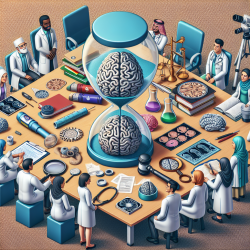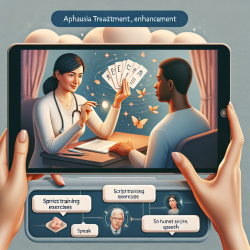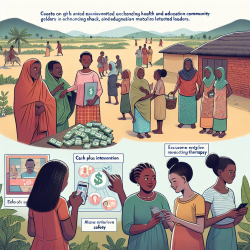Dementia is a growing concern worldwide, with an expected rapid increase in cases within the Middle East and North Africa. This rise highlights the urgent need for reliable diagnostic tools tailored to Arabic-speaking populations. A recent study has validated Arabic versions of several key dementia assessment scales, offering practitioners new resources to improve diagnostic accuracy and patient care.
The Importance of Culturally Relevant Tools
The study focused on validating Arabic translations of the eight-item Alzheimer's Dementia (AD8) screening test, the Alzheimer's Questionnaire (AQ), and the Clinical Dementia Rating (CDR) scale. These tools are crucial for distinguishing between normal aging and mild dementia, offering more comprehensive insights into cognitive impairments than traditional methods like the Mini-Mental State Examination (MMSE).
- AD8 Screening Test: This tool showed excellent sensitivity (96%) and specificity (97%) at a cutoff value of 3, making it highly effective for early detection of cognitive changes.
- Alzheimer's Questionnaire (AQ): Demonstrated perfect sensitivity and specificity (100%), indicating its superior ability to discriminate between dementia cases and non-cases.
- Clinical Dementia Rating (CDR): The Arabic version matched the original in sensitivity and specificity, with the sum of boxes (A-CDR-SOB) providing even better detection capabilities.
The Impact on Practitioners
The validation of these tools means that practitioners working with Arabic-speaking populations now have access to reliable instruments for diagnosing dementia. This development is vital as it bridges a significant gap in dementia care within these communities. By utilizing these validated scales, practitioners can:
- Enhance Diagnostic Accuracy: Use culturally relevant tools that align with international standards to improve diagnosis.
- Facilitate Early Intervention: Detect cognitive impairments earlier, allowing for timely intervention and better patient outcomes.
- Pave the Way for Further Research: Encourage more studies in Arabic-speaking regions to explore prevalence rates and risk factors associated with dementia.
A Call to Action for Practitioners
This study serves as a foundation for further research and application in clinical settings. Practitioners are encouraged to integrate these validated tools into their practice to enhance their diagnostic capabilities. Additionally, there is a need for ongoing research to continue improving our understanding of dementia in diverse cultural contexts.










